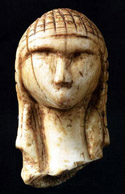Anthropology, Department of

Department of Anthropology: Faculty Publications
Document Type
Article
Date of this Version
1983
Citation
Hames, R. (1983). Monoculture, Polyculture, and Polyvariety in Tropical Forest Swidden Cultivation. Human Ecology, 11, 13-34.
doi 10.1007/BF00891228
[Archived here in author final MS version.]
Abstract
A number of researchers have suggested that polyculture is characteristic of native tropical forest swiddens and have adduced theory from community ecology to account for its adaptiveness. Ye’kwana and Yąnomamö swidden cultivation is examined, and it is shown that polyculture is not practiced to any significant degree. Instead, the concept of polyvariety is introduced along with a number of other cultivation practices that more simply account for the adaptiveness of Ye’kwana and Yąnomamö gardening. In addition, comparative data from other parts of the tropical world indicate that polyculture is no more common than monoculture and recent advances in ecological research indicate that the diversity-stability hypothesis that underpins adaptive arguments of polyculture is in need of drastic revision.


Comments
Copyright © 1983 Plenum Publishing Corporation; published by Springer Verlag. Used by permission.